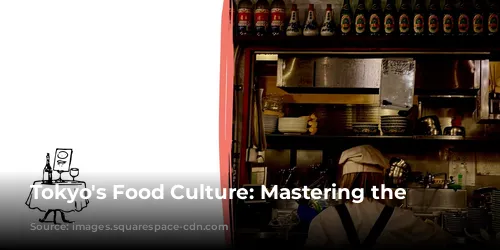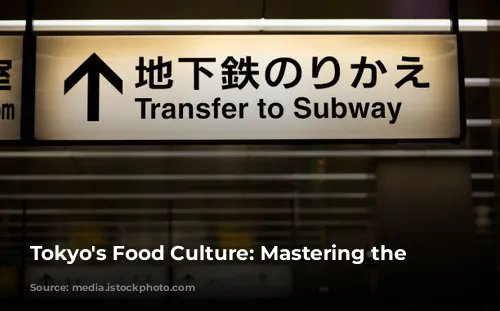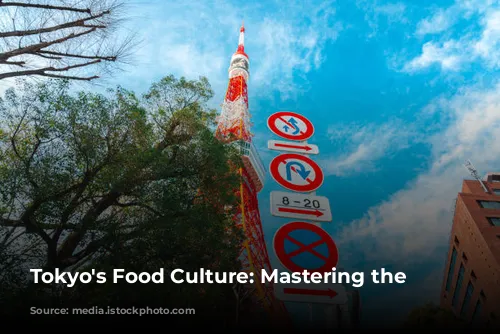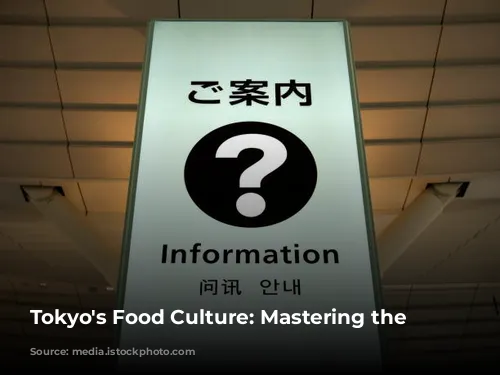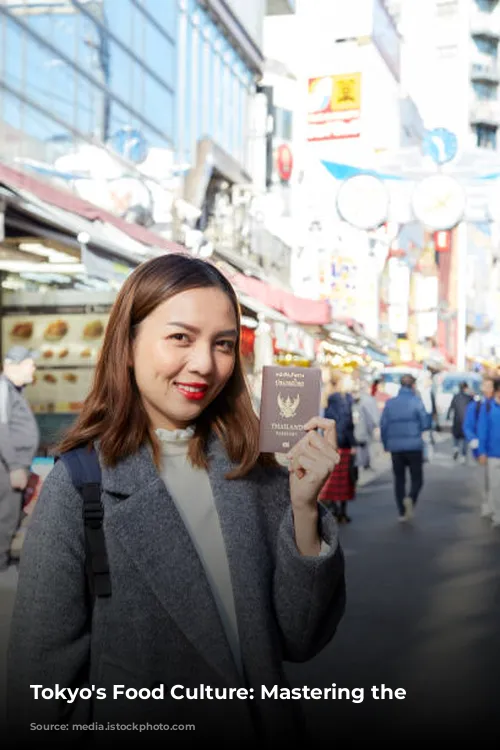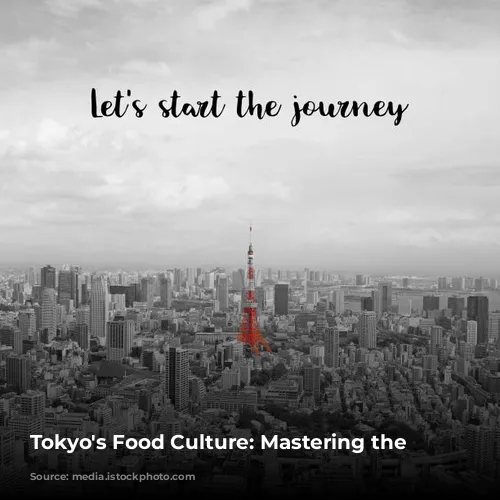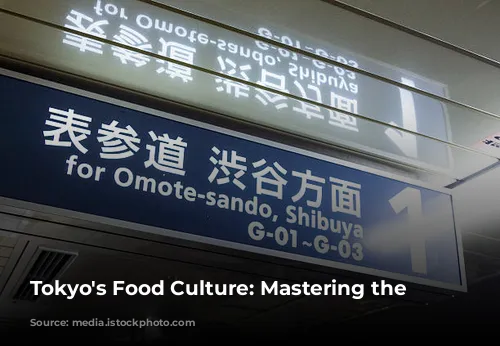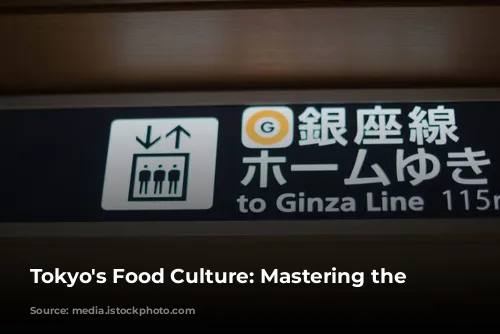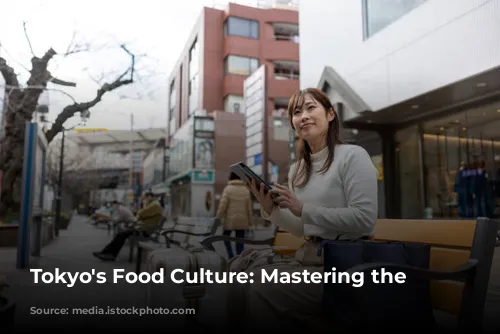Tokyo’s food scene is a paradise for foodies, bursting with incredible dishes waiting to be devoured. To navigate this culinary wonderland with confidence, here are some essential tips:
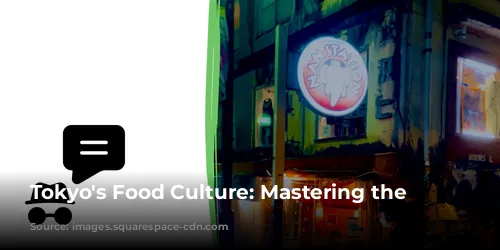
Navigating the Restaurant Experience
Stepping into a restaurant in Tokyo can be a delightful journey. The first step is often a simple hand gesture to indicate the size of your group. Many ramen shops and smaller eateries have convenient ticket machines. Simply choose your dish, pay for it, and receive a ticket confirming your order. This ticket is then handed to the staff.
If you have secured a table and there’s no ticket machine, don’t hesitate to call the staff over when you’re ready to order. This is usually done by raising your hand and making eye contact. If they don’t notice, politely say “sumimasen” (excuse me). This is a common practice in Japan, so don’t feel awkward.
Need an English menu? Just say “eigo menu…?” This might be broken Japanese, but it conveys your request.

Essential Japanese Phrases
When traveling in Japan, you’ll likely encounter some basic questions, particularly when paying for items. Here are some useful phrases to help you navigate these situations:
One of the most common questions you’ll hear in convenience stores and shops is whether you need a bag. Listen for the word “fukuro”. If you need a bag, simply say “onegaishimasu” (please). If you don’t need one, say “daijoubu” (I’m fine).
Another common question at the checkout is whether you have a “pointo cardo” (loyalty card). If they ask this, simply shake your head “no” (assuming you don’t have one).
Here are some additional key phrases to practice:
- “Daijoubu”: It’s okay; I’m fine; No thank you.
Remember: The “R” sound in Japanese is often pronounced like a soft “D” sound, similar to Spanish. For example, “fukuro” sounds closer to “fuu-kuu-dou”.
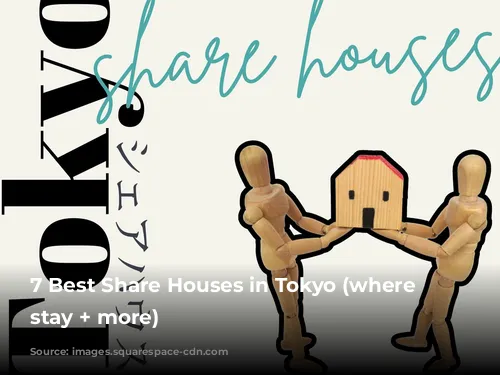
Respecting Japanese Etiquette
You’re likely already familiar with some Japanese etiquette and social norms. However, here are some additional tips to show respect for the locals:
- Avoid eating or drinking on trains.
- Refrain from eating while walking around busy streets. Find a nearby park if you need to eat on the go.
- Do not talk on your phone on trains.
- If you smoke, use designated smoking areas. Do not smoke anywhere else.
- On escalators, stand on the left side. The right side is for walking.
For a more detailed guide on Japanese etiquette, check out: ➤ Etiquette In Japan (what to know)
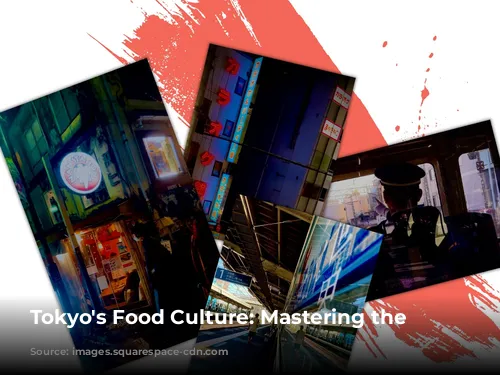
Exploring Tokyo’s Share Houses
If you’re looking for flexible living arrangements and a community experience, consider staying in a share house (a popular option in Tokyo). These offer flexible lease terms, lower costs, private rooms, and shared common areas like kitchens, showers, and restrooms.
Share houses are also foreigner-friendly, catering to travelers and foreign workers with English-speaking support staff.
One of the best things about share houses is that they connect you with a community of people. This is a great way to meet other travelers, locals, and make new friends, especially if you’re traveling solo.
For a list of the best share houses in Tokyo, check out my full list here.

Enjoy Your Tokyo Adventure!
Tokyo is a city that truly captivates, with a vibrant culture and endless possibilities for exploration. From its amazing food scene to its welcoming communities, you’re sure to fall in love with this city.
So, pack your bags, get ready to experience the magic of Tokyo, and create memories that will last a lifetime!
